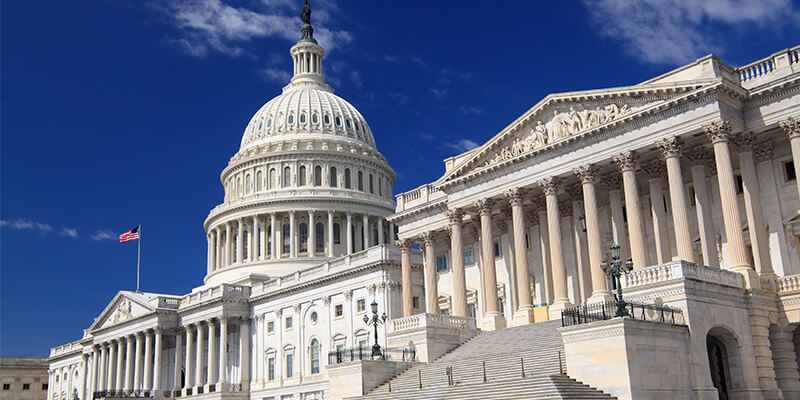The Government Shutdown and Commercial Real Estate

By Aquiles Suarez for Market Share Blog | October 15, 2025
Nearly a month ago – two weeks before the Oct. 1 deadline when Congress needed to agree on legislation to fund federal government operations, we wrote that a government shutdown, if only for a short while, appeared all but inevitable. As of midnight Tuesday, the federal government has been closed for two weeks, with few signs pointing to a quick resolution or change in the political dynamics that led to the current impasse. A federal government shutdown of short duration is perceived by many outside of the nation’s capital as more of a political show than anything else. But the longer a shutdown lasts, the more the impact is felt by businesses and the public, including in the commercial real estate industry.
A quick recap of the policy priorities of both the Senate and House leadership of both parties, and of the White House, is helpful to understand the incentives underlying the actions of each and what could lead ultimately to a deal. The House of Representatives, controlled by Republicans, passed a continuing resolution (CR) to keep the government funded through Nov. 21, the week before Thanksgiving, by which time they believed appropriations funding bills would have been negotiated. Democrats saw the funding measure as giving them leverage to extract concessions from Republicans on Affordable Care Act (ACA) subsidies that had been increased during the pandemic but which expire at the end of this year. Republicans are demanding certain changes to the ACA provisions to reduce perceived fraud and to reduce subsidies that are currently available for higher-income individuals.
Republicans, however, do not have a unified position on the ACA credits, and Democrats are not willing to accept a future promise to negotiate the issue as enough to get them to agree to a temporary funding measure to keep the government open. The White House, for its part, does not want to be blamed for any disruptions or higher insurance premiums that may result from expiration of the ACA credits, but does want to use the lack of government funding as an opportunity to reduce the size of the federal workforce, particularly in areas that are not priorities for the Trump administration.
While the disagreement over the level of healthcare insurance subsidies is the core issue, lawmakers believe that a negotiated agreement is attainable since neither party, nor the White House, want to be blamed for increases in health insurance premiums that would result from their complete expiration. But the politics of the blame game have kept a resolution from being reached. The leadership of each side is feeling more political pressure to maintain their positions rather than move toward a compromise.
View archived blog posts at: http://naiopcharlotte.wordpress.com
